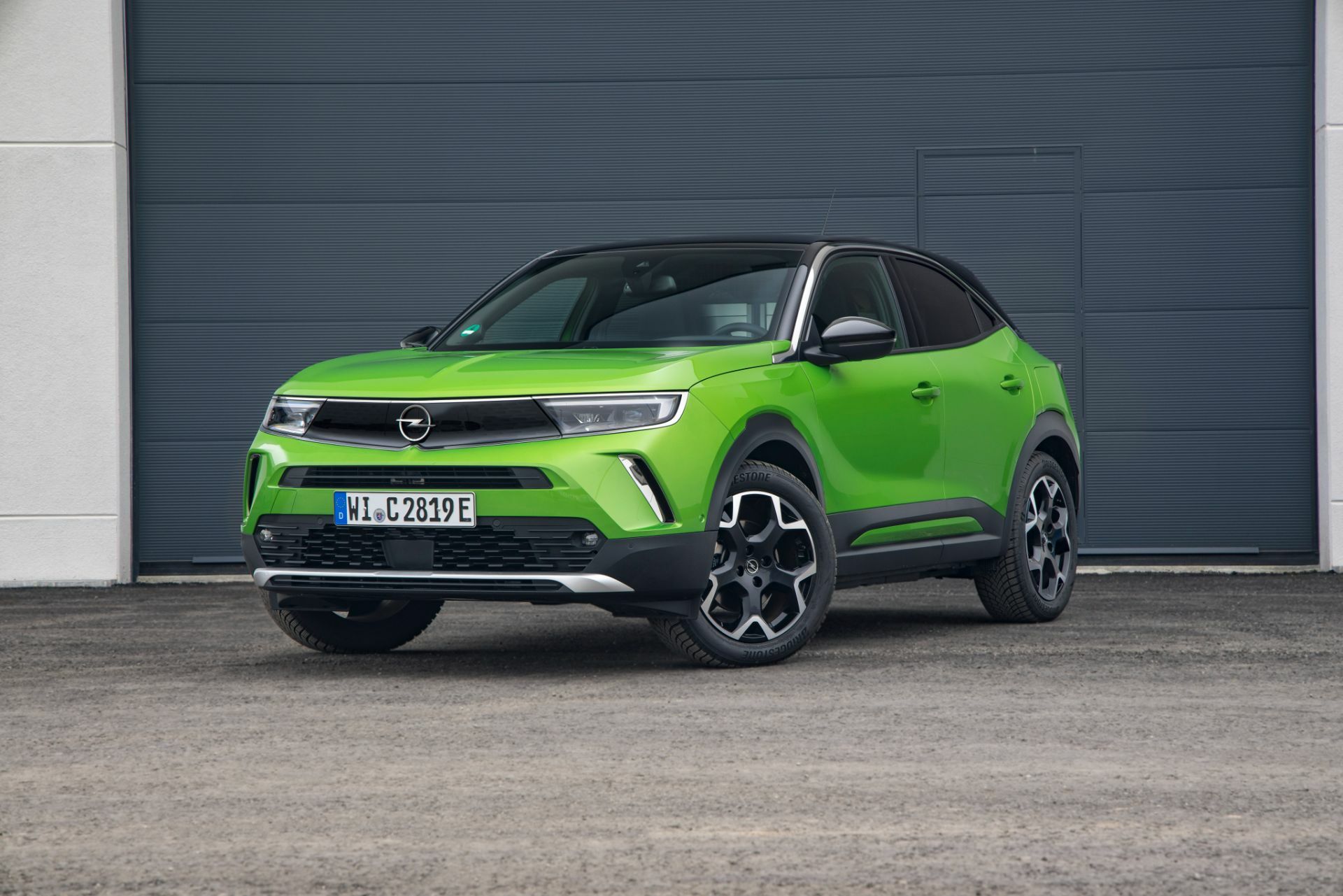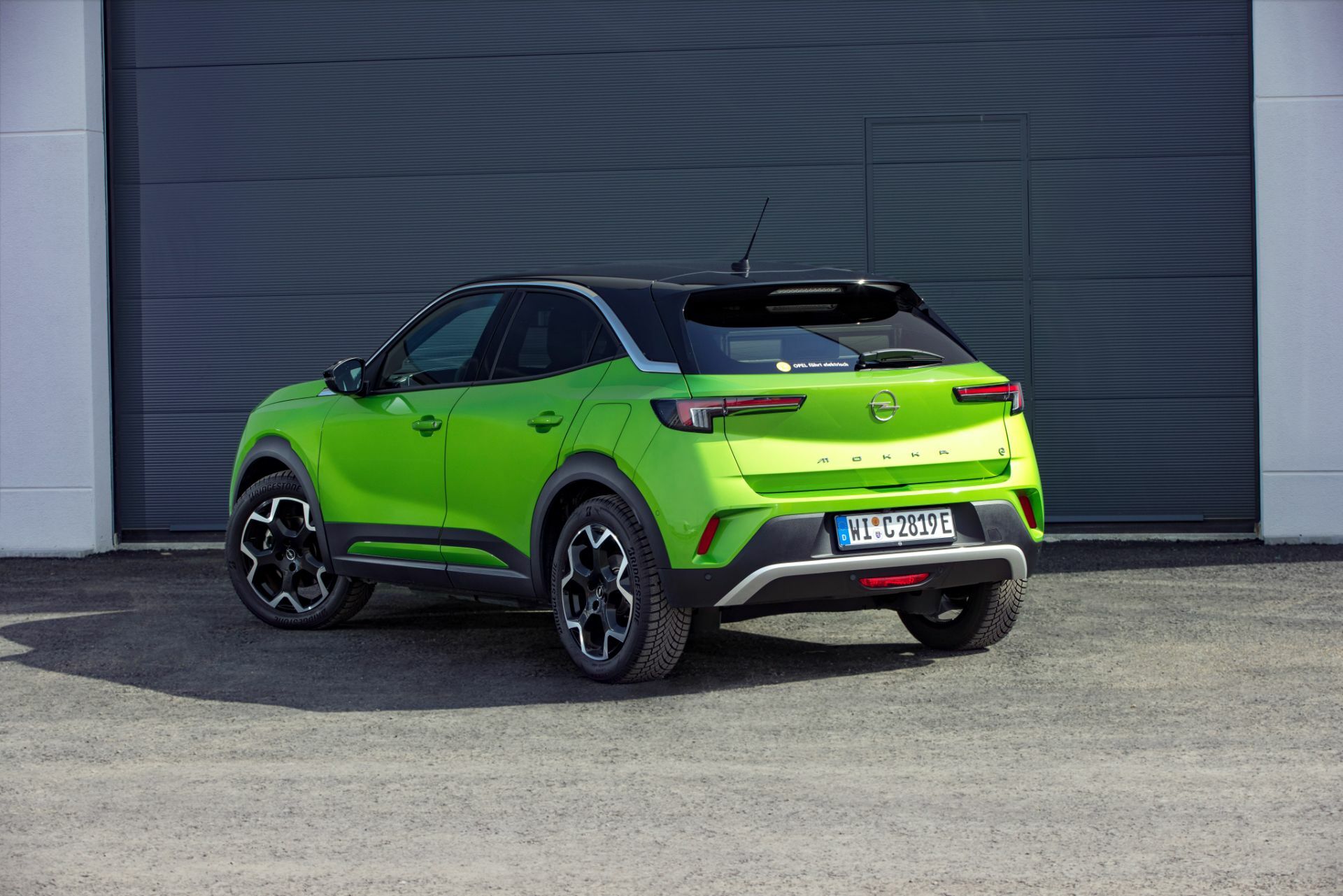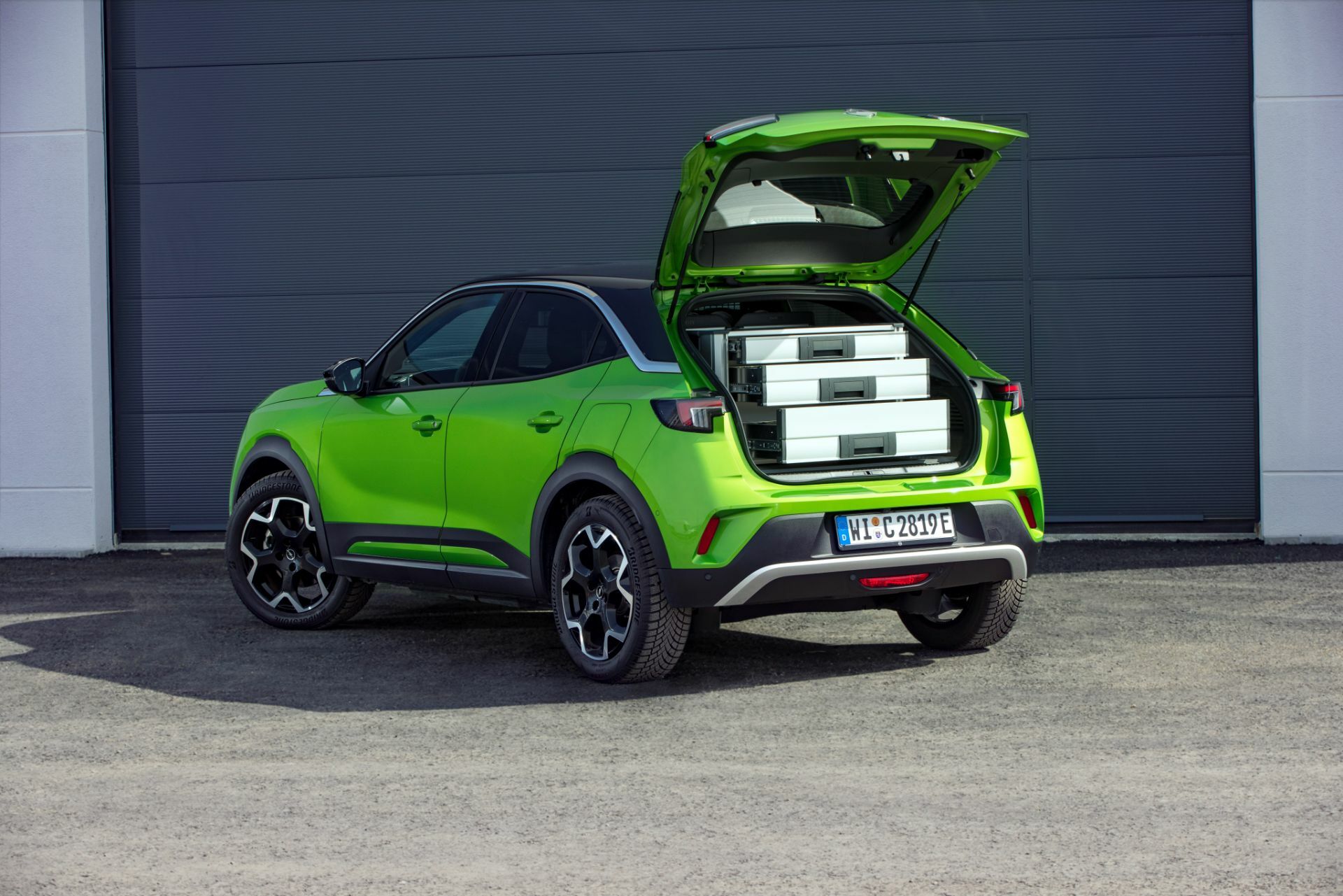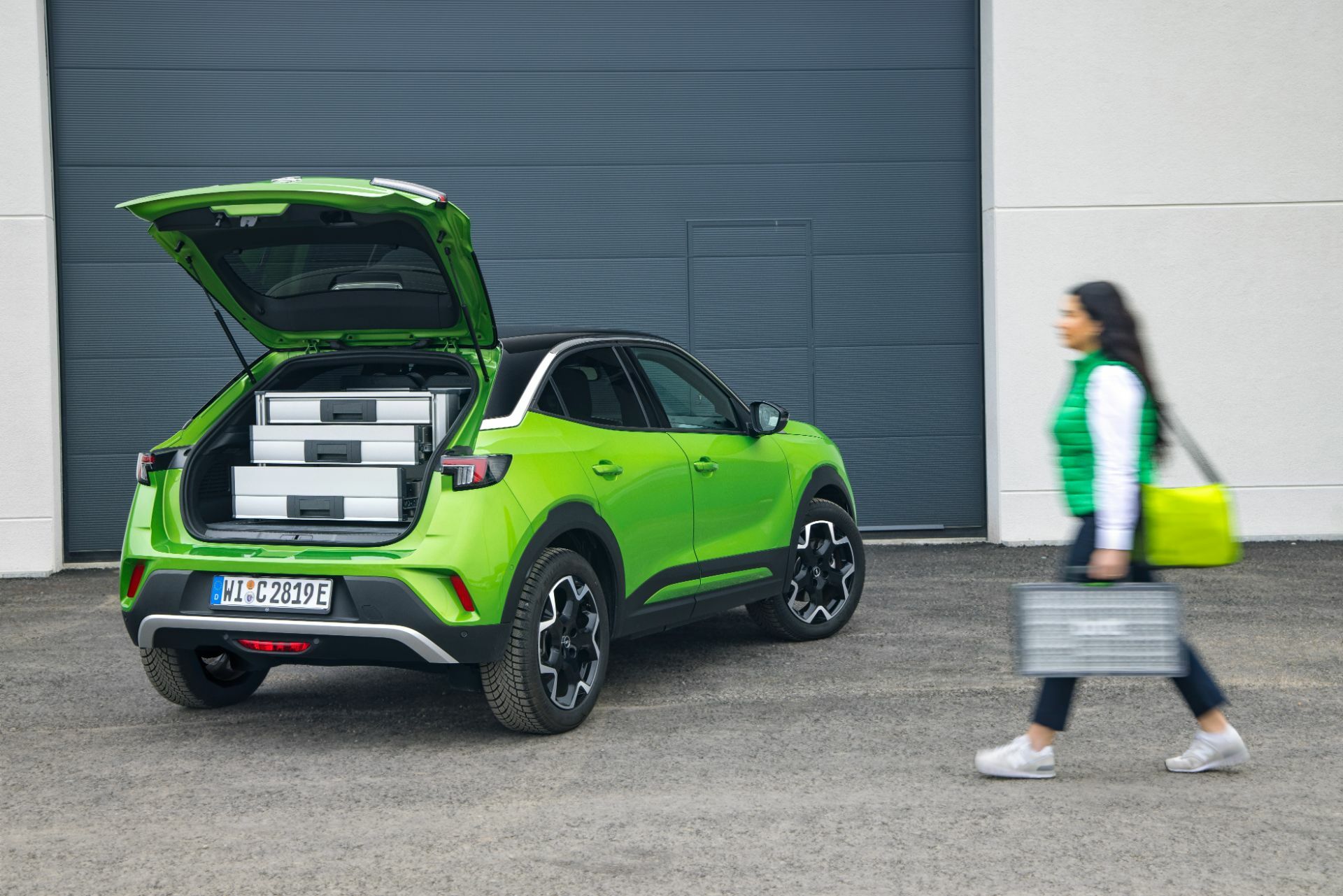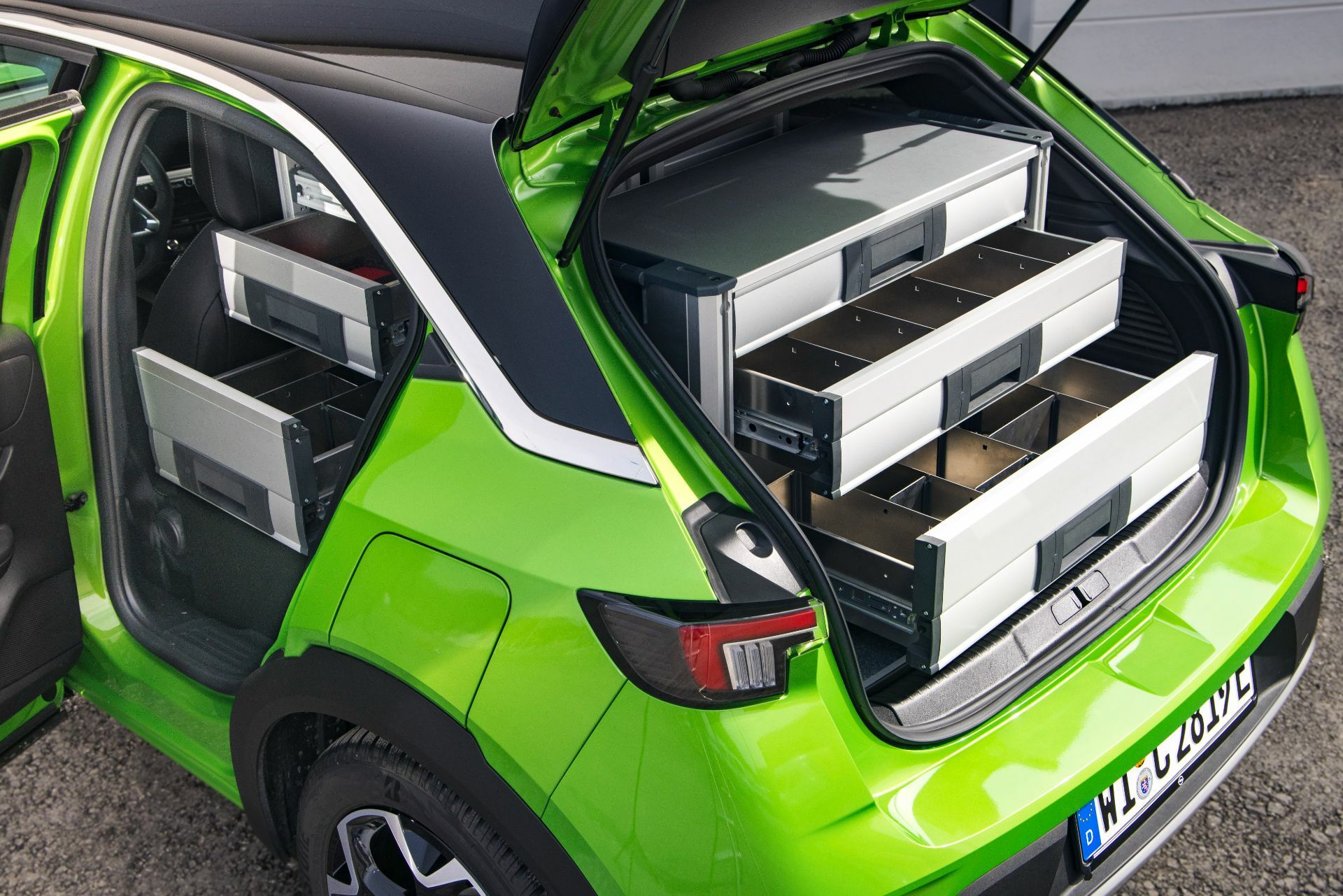The Opel Mokka Electric is not the first vehicle that comes to mind when you think about LCVs, as it is more focused on style than practicality. Still, the automaker revealed a new version of the small SUV designed for professionals, describing it as an “all-electric service car”.
From the outside, the model looks just like any other Mokka. It is when you open the doors that you notice there are only two seats inside the cabin, with the rear bench being replaced by multiple sets of drawers. The “intelligent racking system” is called bott vario3 and comes from the company Bott GmbH & Co Kg which offers similar storage solutions for vans and workspaces.
Read: Stellantis Quietly Debuts Punchier 134HP 1.2L 3-Cylinder Engine In The Mokka
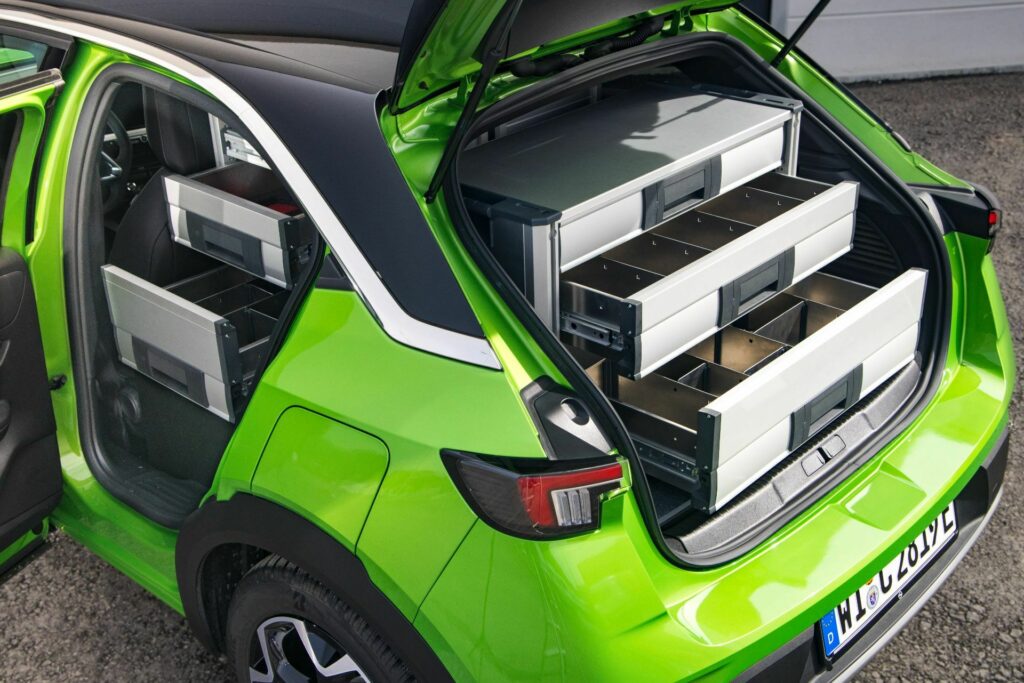
In the Mokka, there are three modules of drawers, accessible from the rear doors and the boot, with the latter being removable. The modules are lightweight and connect to a safety frame that is attached to the vehicle’s body. The company claims that the drawers remained closed during crash tests, and nothing fell out of the modules. As a result, the specially converted Mokka Electric is fit to carry fragile items – including Opel’s Easter eggs as highlighted in the photoshoot.
The Opel Mokka Electric was recently updated with a more powerful and efficient powertrain, plus a slightly larger battery pack. Oddly, the automaker chose the older model to use as a base for the service vehicle. This means it gets 338 km (210 miles) from the 50 kWh battery pack, missing out on the 406 km (252 miles) from the new 54 kWh unit. Likewise, the front-mounted electric motor produces 134 hp (100 kW / 136 PS) instead of 154 hp (115 kW / 156 PS). Still, those specs are more than enough for an urban-focused LCV despite the extra weight it may carry around if all drawers are stuffed with items.
It is not clear if Opel plans on selling this version of the Mokka Electric, but given that the bott vario3 racking system is already available in the market, a DIY conversion sounds plausible. Generally speaking, we wouldn’t be surprised if more automakers presented van conversions based on their sub-compact SUVs. After all, most supermini hatchbacks already come in LCV flavor, so the similarly-sized and mechanically-related SUVs which are usually roomier and more practical are a good candidate for the job.




